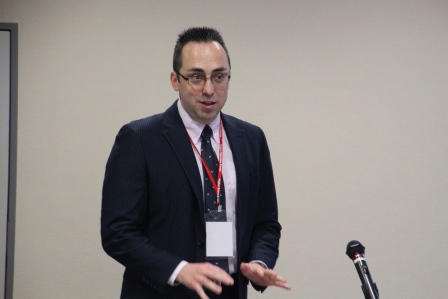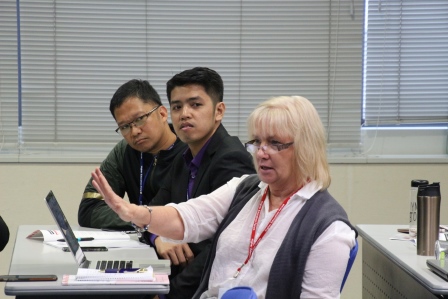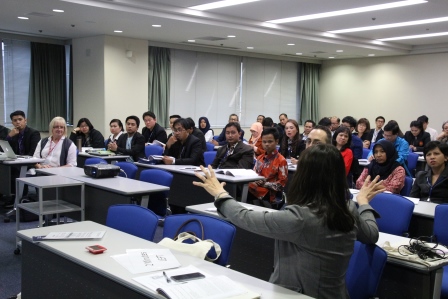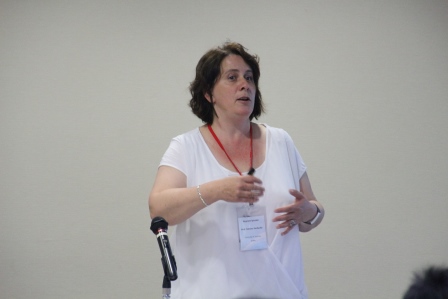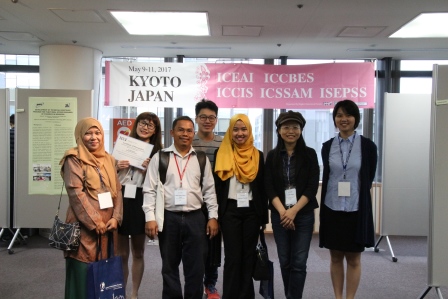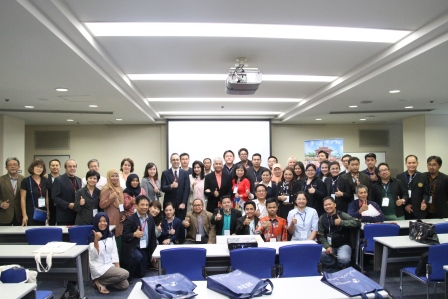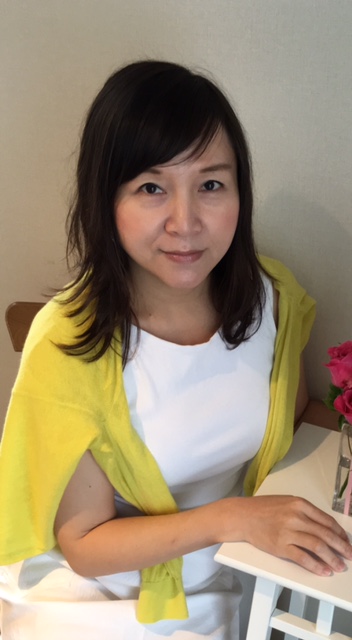ISEPSS 2017
The 5th International Symposium on Education, Psychology and Social Sciences
May 09-11, 2017 Koyto, Japan
Local Host
Michelle Kawamura Ph.D
Associate Professor
Ritsumeikan University
Dear scholars and friends,
On behalf of Higher Education Forum I would like to welcome you all to Kyoto, Japan. Kyoto is a city representing a mixture of traditional Japanese cultures and modernization. From the well preserved constructions over centuries old, thousands of Buddhist temples and Shinto shrines to the untouched nature, this one of a kind place is unique in today’s world. It is also these elements which attract people who appreciate and value historical surroundings. Beyond the various fascinating historical and traditional sites in Kyoto, the city also offers convenient transportation, comfortable accommodation, delicacies from all parts of the world and most of all, the hospitality of Kyoto. People in Kyoto welcome tourists to explore their culture, experience their customs and traditions. All these reasons led to an increasing number of foreign visitors to Kyoto every year. Some people visit for the first time and many others visit more than once.
Each year, many scholastic conferences of various disciplines take place in Kyoto. Kyoto has over 33 national, public and private universities. It also has over 57 vocational and technical schools. Including graduate schools and public and private research institutions, Kyoto takes pride in its education system, scholastic and research development. This is one of the reasons that many domestic and international conferences select Kyoto to host their conferences.
This is my third time, in three years to proudly act as the local host of Kyoto for the Higher Education Forum to welcome all the guests from all over the world. I have presented in 2014 and gave a welcome and keynote speech last year. I have met many professionals from different fields and exchanged knowledge from our researches to cultural experiences. The opportunity here is beyond scholastic exchange, but to also connect us to various cultures to become more aware of cultural differences, empathy and tolerance for others. I have gained new friends and learned profoundly here in the past 2 years participating in the conferences held by the Higher Education Forum. I sincerely hope you will enjoy your stay in Kyoto and bring home lots of experiences and knowledge from this conference.
See you soon~
Michelle Kawamura
Keynote Speaker
Dr. Malcolm Sim
Assistant Professor
Faculty of International
Liberal Arts
Akita International University, Japan
Title
"Innovation in English Language Education: Cultivating Cross-cultural Engagement"
Introduction of Dr. Malcolm Sim
Dr. Malcolm Sim is currently an Assistant Professor in the faculty of international liberal arts at Akita International University (AIU), Japan. Since arriving at AIU in early 2014 he has taught on a range of subjects in the English for Academic Purposes (EAP) program (Advanced Speaking & Listening/EAP106, Advanced Research Writing/ENG150, Global Issue Analysis & Discussion/ENG103, and Professional Digital Communication/ENG171) and is currently teaching Introduction to English Studies/ENG120 and Speech Communication-Social Pragmatics/ENG102 in the Basic Education program.
Dr. Sim has been involved in language education for over 18 years and has worked both in Australia (6 years) and Japan (12 years); the majority of this time employed at the university level. His interests lie in applied linguistics and psychology and how they interact in TESOL contexts. This includes second language acquisition (particularly the role of affective factors), pragmatics, learner autonomy, learner beliefs, EMI, teacher education and curriculum design. In the years ahead, besides maintaining his strong interest in TESOL, Dr. Sim plans to continue teaching and developing a selection of skills and content-based courses that will deliver applied instruction to a diverse range of students studying in an EMI environment here in Japan. He is inspired by research that holds the potential for the eventual development of refined methods and practices that may be utilized in the language classroom and beyond; efforts that may ultimately assist with practical theory, tools and exercises that teachers and students can employ to further their professional and personal goals. As someone involved in education, Dr. Sim believes helping others to achieve their full potential is truly the ultimate reward.
Abstract
The pressure to internationalize across the higher education sector in Japan continues. A significant amount of energy has been directed at the expansion of English as a medium of instruction (EMI) departments and degree programs combined with related efforts aimed at increasing the attractiveness of Japanese universities for increasing numbers of international students. This is, of course, resulting in increasing levels of contact between local Japanese students and their international brethren. This complex setting will no doubt be the focus of much inquiry in the years ahead and one that has direct implications for English for Academic Purposes (EAP) programs that seek to ready local Japanese students for these challenging environments. This presentation describes a pilot research project that involved the controlled introduction of volunteer international students into an EAP speaking and listening class in an overall attempt to (a) gauge the academic and communicative benefits for the Japanese students involved, (b) assess the experience from the perspective of the international students, and (c) investigate the potential for such an effort to be expanded program-wide.
The pilot study, held at a Japanese international liberal arts university with a single group of EAP students, took place within an existing speaking and listening program. The findings from the pilot suggest that the introduction of international students to a preparatory EAP program can provide a range of benefits to Japanese students seeking to enter EMI environments. Despite reporting levels of anxiety in the high to extreme ranges, none of the Japanese participants expressed a desire to leave the pilot program or end it prematurely. In fact, the opposite was observed with individuals universally expressing a desire to move forward. In addition, the volunteer international students also commented positively on their experience in the program. The study produced five key findings from the target group: a) raised intention to use English more outside the classroom, b) lessening of anxiety around pronunciation and mistake-making, c) strengthening of individual resolve to not allow their fears to dominate their progress, d) increased self-belief in their ability and heightened motivation to take further steps to work independently, and e) reduced negative sentiment towards international students. The results, although overwhelmingly positive from a research perspective, contain insights that may require sober reflection for those engaged in EAP programs in Japan; especially those that precede university curriculums featuring content classes with English instruction and potential interaction with international students.
Keywords: Japanese higher education, English for academic purposes (EAP), English-medium instruction (EMI), learner beliefs, anxiety, international
Conference Venue Information
Kyoto Research Park
Tel: +81-75-322-7800
Address: 134, Chudoji Minami-machi, Shimogyo-ku, Kyoto 600-8813, Japan


